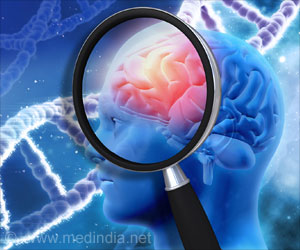Mild brain stimulation can help boost proficiency in maths, according to a recent study.

"With just five days of cognitive training and noninvasive, painless brain stimulation, we were able to bring about long-lasting improvements in cognitive and brain functions," Roi Cohen Kadosh of the University of Oxford, said.
The improvements held for a period of six months after training.
No one knows exactly how the new method of stimulation, called transcranial random noise stimulation (TRNS), works.
But the researchers said that the evidence suggests that it allows the brain to work more efficiently by making neurons fire more synchronously.
Kadosh and his colleagues had shown previously that another form of brain stimulation could make people better at learning and processing new numbers.
Kadosh said that ultimately, with better integration of neuroscience and education, this line of study could really help humans reach our cognitive potential in math and beyond. It might also be of particular help to those suffering with neurodegenerative illness, stroke, or learning difficulties.
Source-ANI
 MEDINDIA
MEDINDIA



 Email
Email










